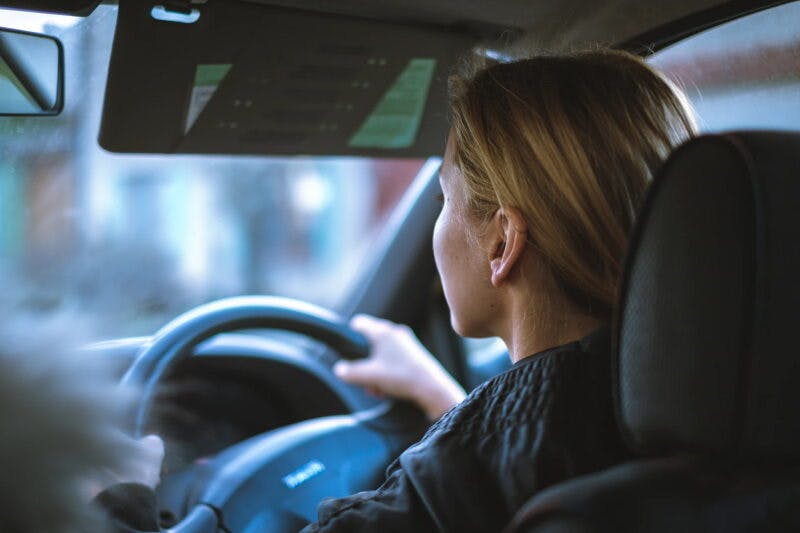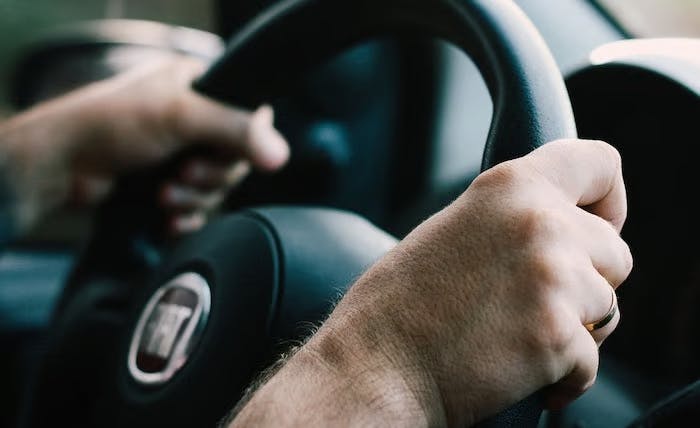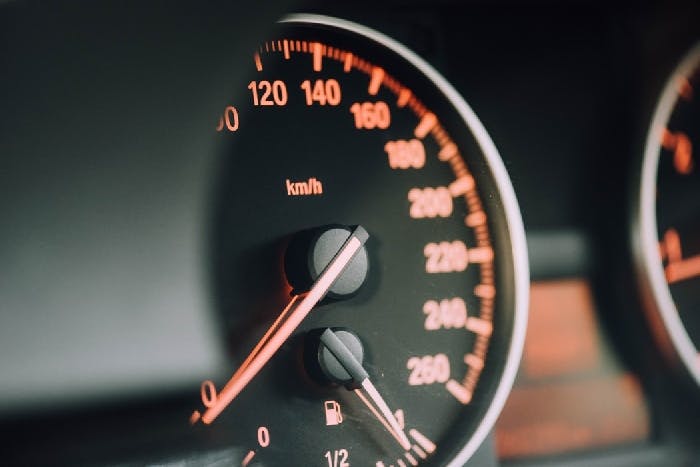
Minimum driving ages are different, depending where in the world you’re based. Generally, you need to be between 16 and 18 to get a full driving licence: one that will let you drive, unsupervised on public roads. But things are often a little more complicated than they first appear. Even in the UK, where you might think you know the driving age, there are different rules for different circumstances.
Stick with us: we’ll break down the laws dictating when you're allowed to start learning to drive a car, and the deal with driving on private land. We'll also cover whether there are any exceptions to the normal age rules (spoiler alert: some people can take their tests at 16!). Finally, we'll tackle some of the other burning, age-related questions. Is there in fact a best age to learn to drive? And is it ever too late to get on the roads?
What age can you start driving in the UK?
The law says that in order to start learning to drive a car on UK roads, you must be at least 17 years old. You can also pass your theory and practical tests as a 17 year old; when you’re successful in both, you’ll be able to get a full car licence and drive solo. You can apply for a provisional licence when you’re 15 and 9 months (15 and 3 quarters, in signing-your-drawing terms).
It seems quite a random age, but it’s because your provisional doesn’t just apply to cars. What it also means is that you can apply far enough in advance to get behind the wheel, with a suitable accompanying driver, and following other learner rules, the moment you turn 17. But that’s not the full story: there are several instances where you can actually learn to drive at a younger age.
Can 16-year-olds drive?
There's strict criteria to be met, but some of you will be in a position to drive as an under-17. Let's take a look at who qualifies, and how you can take advantage of the young driver rules.
Driving at 16 with PIP or DLA
If you are on, or have applied for the advanced mobility aspect of PIP (Personal Independence Payment) or DLA (Disability Living Allowance) you are allowed to drive when you’re 16. However, all the other usual rules still apply to you, so you will still need a valid provisional licence in order to legally drive. Your provisional needs to specify that you’re allowed to drive as a 16 year old, so on your application you must make sure you tick the correct box under Section 1: “What are you applying for?”. Check the box that says “To drive a car at 16 because I am getting / have applied for PIP (or DLA) Mobility Component at the enhanced (or higher) rate”.
The DVLA will then contact either you, or the DWP, for evidence that you’re receiving, or will be receiving the relevant benefits. Be prepared for the process to take a little longer than the usual 2 weeks. When your green card arrives, you must check that the date corresponding to category B (the car category) is correct. If the DVLA has mistakenly issued you with a standard provisional licence (one that indicates you can drive as a 17 year old), you’ll have to contact them for an updated version before you can drive.
What happens if your benefits stop?
If you’re reassessed for your benefits, and the DWP downgrade your PIP (or DLA) so that you no longer received the higher rate for mobility, you are still allowed to learn to drive, and even to take your theory and practical tests before your 17th birthday. However, if you’re deemed to have been in receipt of the benefit illegitimately, you will no longer have this right. That's true regardless of who's at fault. What's less fair is that this rule applies even if the decision to downgrade your benefits is incorrect. In this case, you must wait until you are 17, or your funding is approved again, before getting back behind the wheel.
If you're disabled in the UK, you might be able to lease a vehicle under the Motability car scheme. Depending on your disability, you may find that you’d prefer a specialised instructor.
Not all driving instructors are insured to take 16-year-olds out in their vehicles, so make sure you check with your driving school or instructor before arranging lessons.

Obviously driving on private land isn’t an option for most people. But say your parents own a farm, and you fancy razzing around one of the fields—what’s the deal? Well, for once, the rumours are actually true: there is no legal minimum age for driving on private land in the UK! So long as...
- You have permission to drive the car
- You either own the land, or have the express permission of the landowner to use it, and
- The land doesn’t have public access.
If it’s family land, you may consider it yours. But if it technically belongs to your parents, you’d have to check that they’re 100% happy to let you loose on it. You’ll need to seek permission every single time you drive on private land, or have a very clear, long standing arrangement for your driving to be considered legal. The ‘no public access’ rule is also very important. If the land is privately owned, but there is access to the public, like on a campsite or in a private car park, then under-17s aren't allowed to drive there. The risks are considered unacceptable. And then there are the rules that don’t apply.
Insurance
You don’t actually need to be insured to drive on private land. That does mean, though, that if you have any kind of accident, whether that’s scraping the paintwork or totalling the car, the owner won’t be able to claim anything from their insurer to fix it. And that’s not to mention any damage you do to yourself, or anyone else—whether that’s a friend in the vehicle or a bystander outside the car.
Accompanying driver
You don’t have to have an experienced accompanying driver with you in the passenger seat—although, of course, the whole ‘teaching-you-how-to-drive-slash-checking-your-technique’ thing is quite a good argument for having one. Not to mention the fact that whoever the car belongs to will want to ensure you’re not abusing the privilege. On that note, you'll probably also want to think about how your practice will impact your ability to pass your practical test.
Tax and MOT—if the car has a SORN
If you’re using a car that has a SORN (Statutory Off Road Notification), you technically don’t have to be driving a vehicle with valid tax or an MOT. If that’s the case, it cannot be taken on any public land whatsoever on the way to the private land. But what happens if you’re neither receiving the higher rate of mobility benefits, nor have direct access to private land? Well, there are still options for driving under 17!

You can also take advantage of more formal lessons on private land you can take before you turn 17. These are usually called ‘pre-driver training courses’, with minimum ages of around 15 or 16. They're run by councils, in an attempt to cut road traffic incidents, so they vary, depending on where you're based. Take a look at an example of a course from Nottinghamshire County Council or a similar training scheme offered in Leicestershire.
Throughout the day, you’ll undertake a mixture of theory workshops and demonstration-based learning. And, of course, you'll get some time behind the wheel of a car. You can also access lessons provided by private companies specialising in pre-driver training. These will often be expensive—they tend to cost proportionally more than traditional hourly lessons or crash courses for provisional drivers—but can be a fun way to introduce you to different aspects of driving like learning how to use the clutch and steering.
Search for ‘young driver courses’ to see the options available in your area. So, let’s recap: most people can drive when they turn 17. But if you're receiving certain benefits, driving on private land or undertaking a special course designed for under-17s, you are allowed to get on the roads earlier.
Is there any benefit to learning to drive at a certain age?
The stats show that learning to drive at 17 increases your chance of passing your practical test—but to say that’s all about age is misleading. 17-year-olds clearly haven’t had time to stop and start driving lessons many times, which is one thing that can negatively impact pass rates. They are also likely to be more confident—which can be a benefit, but might also lead to reckless behaviour; young drivers are by far the most likely road users to cause a serious accident.
It’s all well and good talking about learning to drive as early as possible, but that’s just not the reality for many of us. There are plenty of reasons why you might come to driving years, or even decades, after your 17th birthday. The issue might be stumping up the money for driving lessons, or that you're lacking in free time. Or it could be simply that you didn’t really need to learn to drive back then. Thankfully, there's no maximum driving age here in the UK.
Learners drivers of all stages of life have gone on to enjoy the benefits of a pink licence. If you think you're too old to learn to drive, just take a look at Richard, pictured above. He was 70 years old when he took one of our driving courses, and passed his test no problem. It's worth noting that over-70s will have to renew their licence more frequently than younger drivers. But what's a bit of admin compared to the freedom of the open road?
Basically, what we're saying is that it's never too late to learn to drive. But if you’re worried, we’ve got plenty of tips on improving your chances of getting your licence when you’re older.
FAQs
Are there plans to change the UK driving age?
Periodically, news headlines alert us to the fact that the government are thinking about changing the rules about when we can start to drive. There have been many talks over the years about increasing the driving age in the UK to 18. This would put it in line with many other countries, such as Spain and Switzerland. Such debates have resulted from various studies the government has commissioned. However, there are currently no plans to change the driving age.
Will I have to give up my driving licence when I get older?
In the UK, giving up your driving licence is linked to your fitness to drive, rather than age, so you won’t have to ever give up your licence simply because you’ve got older. Although your licence to drive doesn’t itself expire, your pink card only lasts for 10 years at a time. Every decade after passing your practical test, you will have to apply for it to be re-issued. Don't panic: this doesn't involve re-taking your test. Rather, you'll need to fill out a form, answering questions about your health that may impact your ability to drive.
Sometimes health markers correlate with age: people commonly experience a decline in their eyesight as they get older, for example. That's the main reason you will have to reapply for your driving licence again when you’re 70—and every 3 years after that. You will only have your licence taken off you, though, if you commit a serious motoring offence or are deemed unfit to drive—however old you are.
When can you drive by yourself in the UK?
You can only drive by yourself on public UK roads when you’ve passed both your theory and practical tests. The minimum age rules are just the same as they are for learning to drive. So, that's 17 for most people, and 16 for anyone getting the enhanced mobility rate of PIP or DLA.
How do you start driving as soon as you’re allowed?
You’ve got to have a provisional licence in order to drive on the roads, so if you want to pass your test as soon as possible after you turn 17, you’ll want to apply for your green provisional licence before then.
Provisional licences last for 10 years, but your theory test is only valid for 2. So if you swot up early, make sure your driving lessons take place soon after that. One way to make sure you don’t have to re-take your theory is by completing a crash course of driving lessons—where you can learn to drive a few hours at a time, on a regular basis. That way, you can build up your skills quickly, and you’re less likely to forget things in between lessons.
Whether you're 17 or 77, PassMeFast's driving courses can help get you on the road. Take a look at which areas we cover, and see what our customers are saying about us.
Subscribe for driving advice, offers & more
We'd love to let you know about our courses, news and offers via email. You may unsubscribe at any time.
Star Genie Limited trading as PassMeFast. Company number 10093359
Copyright © 2024 owned by Star Genie Limited
PassMeFast, Blue Tower, MediaCityUK, Salford, M50 2ST

